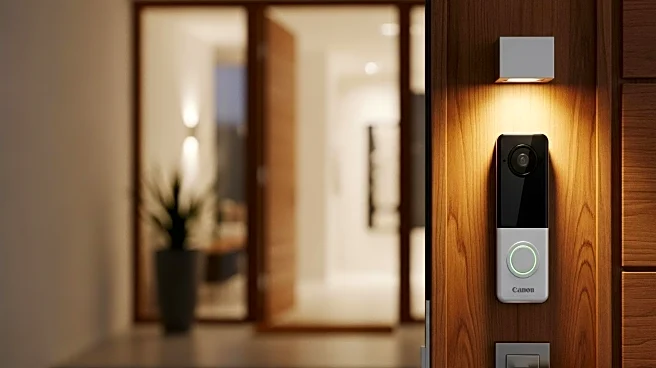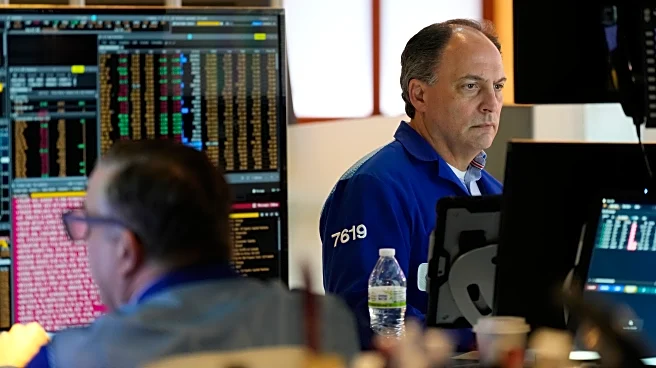What's Happening?
Amazon has significantly reduced the price of its Blink video doorbell, offering it for $39, down from its usual $69. This move is part of Amazon's strategy to expand its smart home product lineup, which includes Blink and Ring. The Blink video doorbell is designed for easy installation and can operate on AA batteries for up to two years, eliminating the need for frequent recharging or complex wiring. It integrates seamlessly with Amazon's Echo smart speakers and displays, allowing users to view the video stream through voice commands. The doorbell features two-way audio and a wide-angle lens, providing users with a comprehensive view of their doorstep and enabling communication with visitors remotely.
Why It's Important?
The discounted price of the Blink video doorbell makes smart home technology more accessible to a broader audience, potentially increasing adoption rates. This aligns with Amazon's goal to dominate the smart home market by offering affordable and user-friendly products. The integration with Echo devices enhances the functionality of Amazon's ecosystem, encouraging consumers to invest in more of its products. The convenience of long battery life and easy installation may appeal to those hesitant about smart home technology due to technical complexities. This development could lead to increased competition in the home security market, prompting other companies to offer similar deals or innovations.
What's Next?
As Amazon continues to offer competitive pricing on its smart home products, other companies in the industry may respond with their own discounts or new product features to maintain market share. Consumers might see more integrated smart home solutions that offer ease of use and affordability. Amazon's strategy could lead to further advancements in smart home technology, focusing on user-friendly designs and seamless integration with existing devices. The increased adoption of smart home products may also drive innovation in related areas, such as home automation and security.
Beyond the Headlines
The widespread adoption of smart home technology raises questions about privacy and data security, as these devices often collect and transmit personal information. Consumers may need to consider the implications of integrating such technology into their homes, including potential vulnerabilities to hacking or unauthorized access. Additionally, the convenience offered by these devices could lead to changes in consumer behavior, as people become more reliant on technology for everyday tasks.










